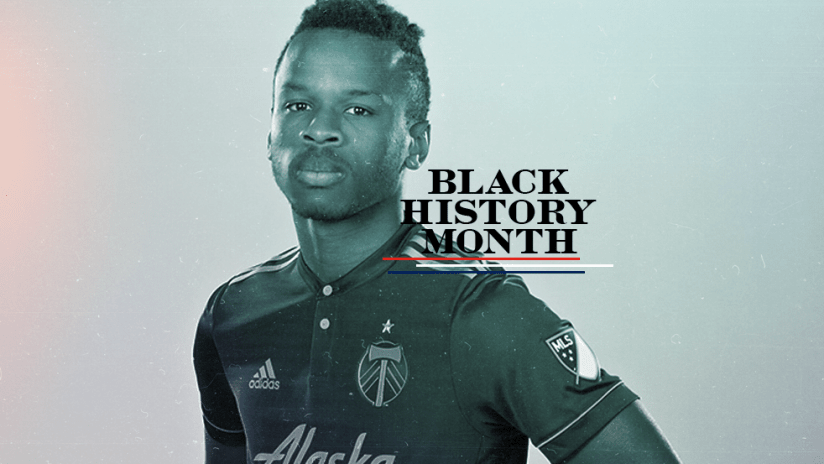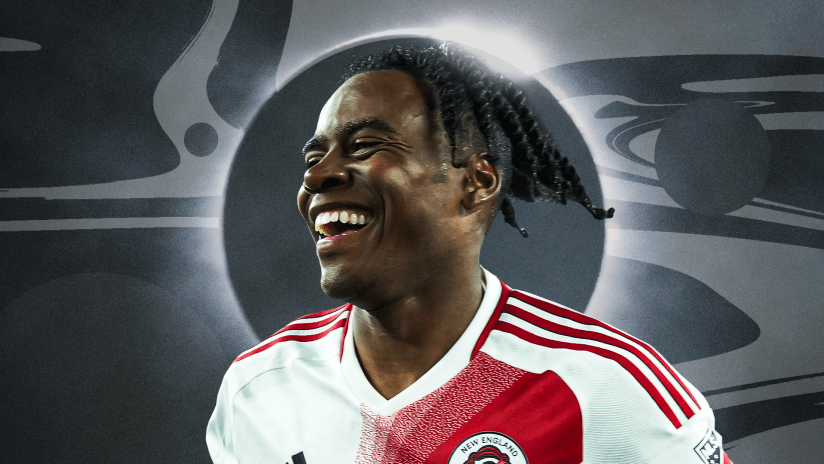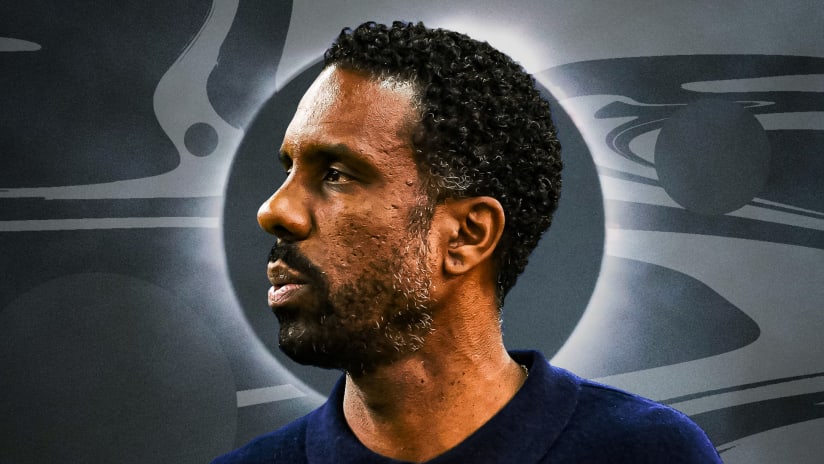EDITOR'S NOTE: This year, MLS and its community outreach initiative, MLS WORKS, launched a new platform, called "Soccer for All." Soccer for All signifies that everyone is welcome to MLS, regardless of race, color, religion, national origin, gender, disability, sexual orientation or socioeconomic status. MLS embraces the diversity of our league and is committed to ending discrimination by driving positive social change and fostering more inclusive communities.
We stand at one of the most complex and dynamic points in this country's existence, one fraught with turmoil, political rhetoric and racial tension. Simultaneously, we're in an era of unprecedented freedom: Freedom of speech, freedom of religion, and more than ever, freedom of choice.
That freedom of choice rings especially clear during Black History Month, as we remember the struggle it took to achieve the liberties we often take for granted today.
Today, athletes don't have to just dribble a ball – Not if they don't want to.
Technological advancements like social media have made the world much smaller and made athletes' brands much bigger. Not only within the world of sport, but also cross-culturally. We don't just follow players on the pitch anymore; we follow them throughout their daily lives. They aren't just figures we see for 90 minutes each week; they're in our faces 24/7, splashed across our news feeds, our social channels and all over our multiple screens.
Through social media, athletes everywhere have a direct conduit to the public. More than they ever have. They have the option to do more than simply "shut up and dribble," as one TV personality recently suggested. And many athletes – especially black athletes, from global icons like NBA icon LeBron James to young, up-and-coming MLS players like Portland Timbers forward Jeremy Ebobisse – and are using these new conduits to wield more and more influence outside the traditional lines.
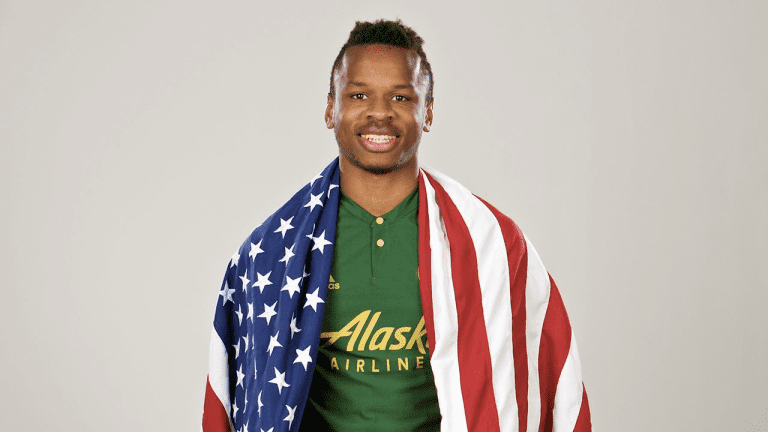
Portland Timbers forward Jeremy Ebobisse was born in France, but represented the United States at the 2017 FIFA under-20 World Cup | timbers.com
But know this: We are not a monolith, as the poignant Key & Peele sketch devilishly points out. In this era of choice, debunking the all-too-common idea that because black folks look the same, we obviously must think the same is of paramount importance. And although today's unprecedented level of access to athletes brings some complications, it also creates an incredible opportunity for the athletes themselves to showcase the diversity of blackness in thought and action across the board.
In MLS alone, that diversity of blackness ranges from Ebobisse, who was born in Paris, of Cameroonian-Madagascan heritage; to NYCFC's Costa Rica international Rodney Wallace, by way of Rockville, Maryland; to Warren Creavalle, a Guyanese international raised in Atlanta, Georgia.
And like black athletes in other leagues and other sports, these MLS players represent the powerful spirit of staying in the action once the ball's out of play. A new generation of socially conscious and intellectually driven players, intent not only on succeeding on the pitch, but also on spreading awareness off of it. Across the league, players like Ebobisse, Wallace, and Creavalle, as well as others like Toronto FC star Jozy Altidore, Real Salt Lake's rising talent Jordan Allen and established Sporting Kansas City veteran Ike Opara are informed, aware, and opinionated – and not shy in sharing.
Ebobisse, whose Twitter feed is peppered with woke references and calls for criminal justice reform, speaks assertively about his feelings on the role of athletes in the public discourse.
"It's important for athletes to use their platform to speak about issues that they're passionate about," he tells me, when we connect by phone from the Timbers' preseason training camp in Tucson, Arizona.
It's not something he simply gives lip service to, either. Scrolling through his feed from just the last couple weeks, you'll see he's chimed in on poverty issues, taken a strong stance on gun control and discussed mental health stigma.
Creavalle, a five-year veteran currently with the Philadelphia Union, can't help but laugh when asked about the subject of athletes staying quiet.
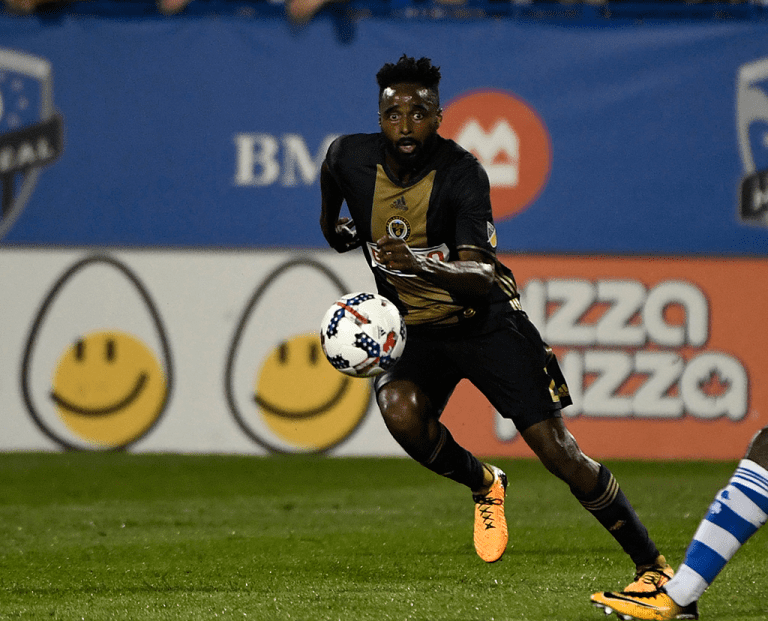
Philadelphia Union midfielder Warren Creavalle | Eric Bolte-USA TODAY Sports
"Yeah, they should just shut up," he says sarcastically. "They just need to dribble and be quiet – that's it."
He chuckles and continues.
"In this day and age, where people will find the smallest things to scrutinize you for, I think LeBron has done an incredible job in always keeping a positive message out, both on-court and off. I think there needs to be more of that. If you have that platform, I think you should continue to utilize it to continue to be that kind of mouthpiece, especially in the NBA, which is, in my opinion, the most visible sport. And across sports, I think it's important for us (as athletes) to have a role in that as well."
Opara echoes his colleagues, but takes it a few layers deeper into the complexity of exactly what speaking out means in this day and age.
"It's interesting, right? Because I believe everyone should speak out in some capacity, whether that's your immediate surroundings, or whether that's on a national level.
"The thing that's tricky," he explains, "is that you've really got to be able to understand culture, experience systems in America. You've got understand society as a whole in a historical sense dating back, from slavery to the present day.
"And so, unless you can really understand all the intricacies of it, it's hard for me to say that everyone should want to do it because it's not easy to first learn and then explain it with the rhetoric. I feel those who truly feel passionate about it and want to, they have a right and should be doing it."
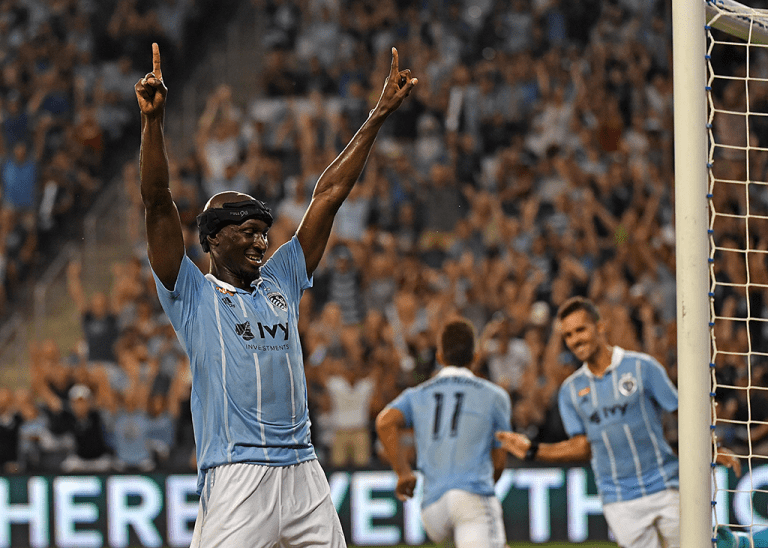
Ike Opara (left) celebrates after a goal | Peter G. Aiken-USA TODAY Sports
Opara's final statement reverberates, especially in the face of rejecting blackness as monolithic. The individual agency and empowerment of this age is strong, and the growing diversity throughout the soccer world – and specifically in MLS – reflects that reality. Soccer has well and truly crossed over, in fashion, in music, in art, in culture. For the first time in history in this country, "black" and "soccer" are being coupled together on a regular basis.
Think, for example, of Atlanta United, which is not only embracing the city's soccer culture, but also leaning fully into the city's blackness, into its rich cultural history and its vibrant future. Or MLS's new campaign TV spot, which showcases MLS within the urban black experience.
As we celebrate Black History Month, we are reminded of the struggles African-Americans have faced and the victories that have been won. But it's also a celebration of hope for our future. The past is clearly understood and appreciated, while this new generation of young, black MLS players and their wide range of views on how to exercise those freedoms is testament to the future and the diversity of thought that will carry us all into it.
AARON WEST is a New York City-based content creator with COPA90 who played soccer at Davidson College. "I have decades of firsthand experience in the highs and lows of being a black soccer player in this country. I've traversed back and forth across my state, trekked around this country, and traveled the earth – all because of soccer. My love for this sport has opened many doors, and my experience as a black man in this sport has given me a passion for exploring issues on race in soccer."

